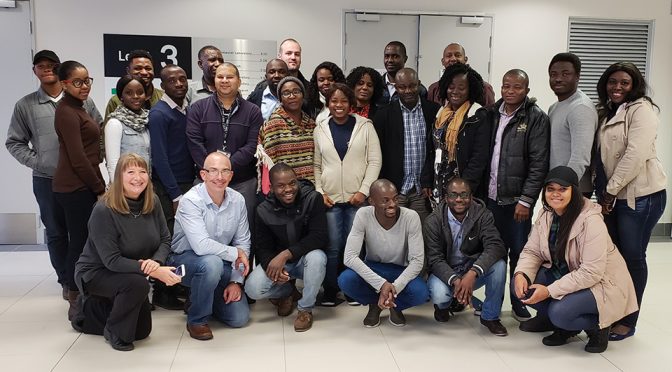Access to consistent and safe drinking water is one of the biggest challenges facing humanity, and in many African countries the clean water shortage is getting worse. John Kevern, Ph.D., associate professor of civil engineering, has been working alongside graduate students from the University of the Western Cape to help find a feasible solution for the crisis.
Water scarcity, or lack of safe drinking water, in South Africa is often the result of climate change, growing population and heavy metal contamination from abandoned mines. According to the South African Department of Mineral Resources, 6,000 neglected mines are filling with water and causing an outflow of acidic water from metal or coal mines.
“In one location, about 11,000 people live around an abandoned mine, many of them unemployed miners unable to afford housing elsewhere,” Kevern says. “Fundamentally, social justice comes down to access to safe drinking water.”
Kevern and his team have discovered that by using waste fly ash, a byproduct of coal combustion, from two regional power plants, they can neutralize the acid mine drainage and help generate clean water. When fly ash is inserted into the mine and mixed with acid water it creates a hard, nonporous material. That helps prevent any additional oxygen and water from getting into the mine and causing further pollution. The chemical composition of fly ash makes it a common and cost-effective ingredient in treating acid mine water.
Since Kevern returned to the U.S., he has been working remotely with the Western Cape students who are continuing to conduct fullscale filter testing in the lab. The neutralization process, Kevern says, is fairly mature. The team’s next steps are to figure out what to do with the excess waste. Their idea is to use the waste to make cement to fill the mine and prevent drainage from reoccurring.
The team will pilot the project this winter. If the project goes as planned, they hope to implement this solution across the continent. That means two things for Africa: more jobs for students and
increased access to clean water.

